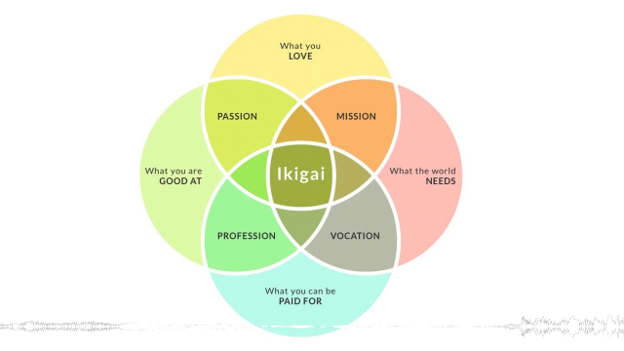Before reading this article, I would first like to acknowledge the different teachers involved in this article. Ms Edie Griffiths, Ms Hazel Matthews, Ms Janet Leeke, Ms Jessica Jay, Mr Jon Linklater, and Mr Samuel Yates, a huge thank you to all of you!
School subjects can often be a hard thing to not only study but as well as choose. With the school year ending for almost all of us, we can only assume that both students and teachers are glad to take a break from studying, working, and devoting themselves to academics, no matter how fulfilling and joyful it is. However, for some students, they might be going back to school or find themselves in a position wondering what they should pursue next or what they should focus on studying for the upcoming school year. With this in mind, I went around our CGA online teaching staff and asked six different teachers, all teaching different subjects, four questions. Questions focus on the subject they teach and what they think about other subjects. In a world where academics matter and what we choose to study can determine our university, grades, and self-confidence, this article hopes to help all students looking to know more about what is out there!
Question 1.
What is your subject?
Before we start with the different views on each subject, it would be vital to first introduce ourselves to the various subjects taught by our CGA teachers. Six different teachers, six different subjects. This article utilises the wide range of options CGA offers our students by involving a mixture of STEM, social sciences, and humanities. Introducing a few of our many teaching staff at CGA, economics and business teacher Ms Edie Griffiths, English literature and language Ms Hazel Matthews, mathematics teacher Ms Janet Leeke, psychology teacher Ms Jessica Jay, biology teacher Mr Jon Linklater, and last but not least, history teacher Mr Samuel Yates.
With this being introduced, I would like to preface that this article focuses on Economics, English Literature, Mathematics, Psychology, Biology, and History.
Question 2.
What do you think people view as the hardest part of your subject?
Learning about what our teachers think are the common perceptions of their subject provides us, students, or future students, with a pre-determining idea of what our educators see and observe from students and maybe even non-students of different ages. With this in mind, I asked each of our six teachers what they think people view as the hardest part of their subject.
Our economics and business teacher, Ms Griffiths, answered, ‘Often people think that Business and Economics are very maths-heavy. There are many quantitative elements to the course, but they are certainly not overwhelming if you have a solid maths understanding.’ It is often common for people who focus on subjects not involving math or have a dislike or find difficulty in a subject to be intimidated by the idea of studying or being involved with mathematics; this tends to push them away, unrightfully, into further exploring the subject of economics.
Secondly, I asked our English literature teacher Ms Hazel Matthews the same question. Her answer is, ‘Managing all of the reading, especially Shakespeare and including all of the necessary skills.’ Being an English literature student myself, it is easy to be lured into procrastinating a chapter or two with the false sense of security of knowing that there is time the next day. It is often important to realise that by reading and applying the skills we learn, students studying English literature make it easier for themselves by allowing them to have sufficient time to analyse the different readings and essay writing closely.
I then also asked our mathematics teacher Ms Leeke. ‘Algebra. Many people who struggle with mathematics cannot understand that using algebra can make the problem easier to understand and hence solve.‘ Without having the core foundation and truly understanding the basic principles, it is understandable that it would be difficult for students to start answering further advanced complex equations.
Moving forward, I asked our psychology teacher the same. Here is her response, ‘The statistics. We cover three statistical tests which require a basic understanding of probability. Often, this is the area students would rather avoid although, in reality, it is a very straightforward part of the course.’ Likewise, with economics, many students who do not study mathematics or have difficulty with it tend to deviate from it and judge the content, or at least have a pre-determined feeling towards it.
In response to the same question, biology teacher Mr Linklater says, ‘The excessive volume of content that they need to retrieve. And then maybe biochemistry and genetics.’ Despite the fun aspect of learning how living organisms work, their functions, and everything else, the amount of content that needs to be studied in close detail often intimidates students whether or not they are studying the subject. However, as Mr Linklater says, ‘Difficulty is subjective; what is hard for one person may be trifling for another.’
Lastly, Mr Samuel Yates, a history teacher, said this, ‘Learning and memorising dates’, a phrase most of us definitely think or at least have come across it, and rightfully so if spaced revision is not used or followed.
Question 3
What do you think is actually the hardest thing about your subject?
With the questions and responses from our CGA teachers in mind, let’s see what they actually think is the hardest part about their subject.
Being experts in their field, all gave detailed explanations based on their experience as both a student and teachers of their subject. With the question sent to Ms Griffiths, she said, ‘Some students may struggle with the fact that Economics is a social science, meaning that there is often not a definitive answer. If you come from a science background, where things can be proven or disproven, having a subject based on predictions (hopefully precise predictions!) can take a while to get used to.’ Learning to cope with the fact that despite mathematics being a somewhat complicated aspect of economics for some students, students who are used to being able to accurately predict and get a definitive answer may not be used to having to settle with only the former predictions. Despite this, learning the principles, making predictions, and studying economics is a fun journey when one is always willing to listen and be open-minded!
Secondly, Ms Matthews responded to the question by saying that ‘For students, it’s managing their time to ensure they complete all of the reading/work set and the detailed analysis of concepts, especially trickier aspects such as structure.’ this goes back to the previous question. Learning to manage and divide your time will allow you to adequately study every aspect needed to write a profound essay relating to whatever literature is being studied. From a teacher’s perspective, and surely other students, she says, ‘I personally find Poetry the hardest part of English because of all the possible interpretations.’ with the lengthy poems, numerous critics and different interpretations, each of us studying English literature will be overwhelmed with studying poems, no matter how much you enjoy reading and writing it, at least once.
Thirdly, Ms Leeke says, and I quote that ‘I think the hardest part of Mathematics is understanding what the question is asking you to find, and then, which skills/methods you need to use to solve the problem.’ Learning to take the time and truly understand what you need to know can tremendously help in being able to use your time efficiently when answering the question and minimise doubts as much as possible. Her response continues with, ‘Sometimes it is obvious that you need to use trigonometry, say, but other times it is more open-ended. Unless you fully understand the question, you will struggle to know what is being asked of you,’ being able to study and truly master as many concepts as possible allows you to formulate and decipher what method needs to be used. Hence, ensuring that studying the concepts and practising questions will enable you to get used to the structure of the questions and help you improve your critical thinking skills when solving an equation.
Fourthly, asking Ms Jay what she thinks is the hardest thing about psychology, she says, ‘Writing answers to applied questions. Many of the psychology questions require students to apply a theory/study results to a given scenario.’ Understanding and knowing the different types of questions allows each student to organise their thoughts in order to provide an answer precisely. ‘Although students often know the correct answer, they frequently forget to directly link the scenario to their points,’ following this, it is as important to know that taking a deep breath and remaining calm is just as influential when answering any question and not just in psychology.
Continuing, the same question was also sent to Mr Linklater, ‘The critical thinking questions that require some evaluation and insightful thinking,’ knowing the importance of what needs to be thought about, the questions that are asked are not set up to be purposefully difficult, but rather a thought-provoking question that allows not just scientists, but as well as students, or anybody studying biology. This is important to remember because most of the time, the answers that students look for are usually present and just need some thinking. Sometimes, the solutions the questions ask for are also straightforward. Mr Linklater also said that ‘This is what allows scientists to be creative, accurate and precise in the observation, experimentation and analysis of that natural world’. Being presented with ‘critical thinking questions’ allows each of us to be pushed to think deeply, and with this, some are inspired to find out more.
Last but not least, Mr Yates says this ‘Having the courage and confidence to deal with the uncertainties of interpreting multi-dimensional problems experienced by different people living in different times and places.’ knowing that history is ever so changing, students studying it must allow themselves to think critically about not just the past, but as well as how it relates to the present and how it will also further relate to the future. Truly understanding the different events that have happened in the past allows students to confidently develop an answer or a conclusion that involves not just times and dates but also the range of places and people involved. History is always being created, and for future generations that have not lived yet, we are their history.
Question 4
Question 4 focuses on the opinions and perspectives of our CGA teachers about the subjects that most of us deem opposite or quite different from one another. Each teacher had tailored each question to ask them about a different subject.
What do you think is the hardest part about English literature?
Asking Ms Griffiths about English literature, she responded, ‘ I would imagine the volume of reading you need to complete alongside your studies. Whilst also wanting to make time to read for pleasure too.’ It stays consistent that managing your time for each required reading as well as reading for pleasure, is an obstacle that most students seem to face. Learning to manage your time truly will not only allow you to study and improve better but also help ensure that you allow yourself some time for leisure and relaxation as well. Because what literature student does not enjoy reading?
What do you think is the hardest part about biology?
For this question, we are taking a different approach into answering the question. This is due to the circumstance that Ms Matthews is currently unavailable. Following this, please keep in mind that the answer that will be shared in this article for this question will come from direct brief research by the article writer.
First tackling assumptions worldwide is that due to the broad nature of biology, it lacks intensity and less skills are required in comparison to other STEM subjects (Peck 2020). However, this does not mean that biology does not have difficulty or is not important. According to Ibrahim, Nuhu & Mohammed, Abba & Uzoma, Grace & Bizi, Maryam (2021), It has been recognised that biology is essential for pursuing courses in geosciences (geology and geophysics), engineering, pharmacy, nursing science, and other science-related fields that are crucial components of economic growth and national development. This is due to the nature of the subject as it focuses on theories, concepts of not just animals or humans, but as well as other living organisms and biological systems.
‘What do you think is the hardest part about psychology?’
With the same question in mind, Ms Leeke says, ‘I think psychology sounds so interesting, and whenever you see psychologists in films or on tv, they make the subject seem exciting.’ Psychology as a general topic and not just a subject allows creative and logical minds to apply the science behind people’s thinking and behaviour to various topics of their favourite. ‘However, like with all subjects, there is a lot of theory to understand. We all try to pigeonhole people and their problems. Still, when you learn Psychology as a subject, you realise there are many case studies, theories, studies and biological factors to consider. ‘ Despite the fun aspect of psychology, it also pushes students and people interested in it to learn several theories and concepts to be able to accurately and objectively apply their understanding.
What do you think is the hardest part about economics?
This is what Ms Jay has to say ‘Hmmm, I could probably do the more human side – the consumerism parts.’ As a psychology teacher that focuses on applying theories and concepts to real life, we assume it would be quite similar to economics in a way. She continues her answer by saying, ‘I think, for me, the hardest part would be the calculation of maths for various purposes to predict markets.’ As previously mentioned, the mathematics involved does tend to deter the exploration or interest of others, even the smartest minds!
What do you think is the hardest part about history?
With Mr Linklater focusing on the internal aspects of human beings and other living organisms, I asked him what he thought was the hardest part of history as history focuses on creating essays about the external events that happen to humans. Here is his response, ‘Concluding that History is not fixed. It will constantly be re-examined, re-interpreted and re-evaluated, especially as new information is uncovered. It is necessary to tread cautiously while necessarily reaching interim conclusions that allow insights into the nature of humanity.’ Due to the ever-changing present, the events that have happened in the past, as mentioned by Mr Linklater, will be taught, with new critical and important events happening, and comparisons between the past, present, and future will constantly be taught. Additionally, being able to relate the past events and figure out how it relates to people can also be seen as a common similarity between biology and history as they both try to relate it and create its significance to the mind and body of people.
What do you think is the hardest part about mathematics?
Lastly, asking Mr Yates about the difficulty of math, he gave us a short but significant answer, ‘Maths is the learning of a language that isn’t spoken’, learning to understand the concept and applying it to numerous equations is a difficult aspect of mathematics as it pushes you to truly understand and focus on what it is you’re solving. However, just like languages that are spoken, once the practice of mathematics has been embedded, mathematics will come just as naturally!
Concluding this article, a few things to take in mind when figuring out what subjects we want to pursue is whether or not we actually have interest in the subject, are we hardworking enough that even when we feel challenged, we won’t give up, and lastly, do we need to study the subject for the career we want to pursue, does it help us in any other way, or is it simply a subject we want to dive in and study? Each subjct has its advanatges and disadvanategs, furterhmore, what one student finds diffiuclt may differ from what another actually find challenging about the subject. That is why it is important to know more and ask experts of the subject instead on relying on assumptions and what other people say. Hopefully after reading this article, you have now gained more clarity about what you want, other questions you may want to ask, and so more!









